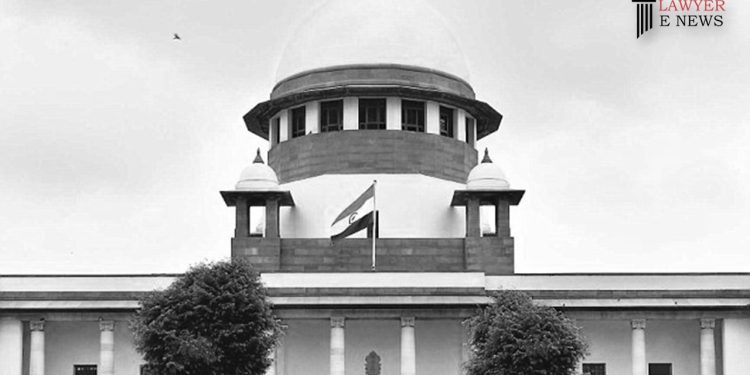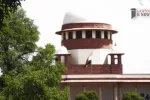Actual custody shall mean actual custody – Custody Beyond Initial 15 Days permitted – SC

“Actual custody shall mean actual custody,” stated the Supreme Court, making it clear that the investigating agency is entitled to custody as per Section 167(2) CrPC beyond the initial 15 days. The Court clarified that any curtailment of the 15 days of police custody by extraneous circumstances or court orders not being the handiwork of the investigating agency would not act as a restriction, upholding the principle of Actus Curiae Neminem Gravabit.
In a significant ruling, the Supreme Court of India clarified that the provisions of Section 167(2) of the Code of Criminal Procedure, 1973 (CrPC) are applicable to proceedings under the Prevention of Money Laundering Act, 2002 (PMLA Act). The judgment, delivered by a bench of esteemed justices, settled the dispute over the period of custody during investigation under the PMLA Act.
The Apex Court categorically stated, “The custody of an accused under the PMLA Act can extend beyond the initial 15 days, as long as it does not exceed a total period of 15 days, subject to a literal and natural interpretation of statutes.” The court further emphasized the importance of adhering to the established legal principles in its judgment.
The ruling came as a response to the challenge posed to the applicability of Section 167(2) of the CrPC to PMLA proceedings. The Court rejected the argument that custody could only be given within the first 15 days of remand and ruled in favor of the investigating agency.
The judgment also addressed the maintainability of a writ of Habeas Corpus after the arrestee is forwarded to the jurisdictional Magistrate under Section 19(3) of the PMLA Act. The Court held that “no writ of Habeas Corpus would lie” under such circumstances, and any plea of illegal arrest should be raised before the jurisdictional Magistrate.
Furthermore, the Supreme Court emphasized that non-compliance of the mandate of Section 19 of the PMLA Act would benefit the person arrested, and the Competent Court has the power to initiate action under Section 62 of the PMLA Act.
In a crucial move, the Court referred the larger issue of the actual import of Section 167(2) CrPC to a larger bench for authoritative pronouncement, raising the question of whether the 15-day period of custody should be confined only to the first 15 days of remand or can extend over the entire period of investigation (60 or 90 days) as a whole.
The judgment garnered significant attention from legal experts and practitioners alike, as it has settled a long-standing ambiguity surrounding the applicability of Section 167(2) of the CrPC to PMLA proceedings. The decision is expected to have far-reaching implications on investigations under the PMLA Act and how custody is granted during the course of such investigations.
With the Supreme Court upholding the investigating agency’s right to custody within the prescribed limits, law enforcement agencies are likely to benefit from enhanced powers during the investigation of money laundering cases.
Date of Decision: 07 August 2023
SENTHIL BALAJI vs STATE REPRESENTED BY DEPUTY DIRECTOR AND ORS






